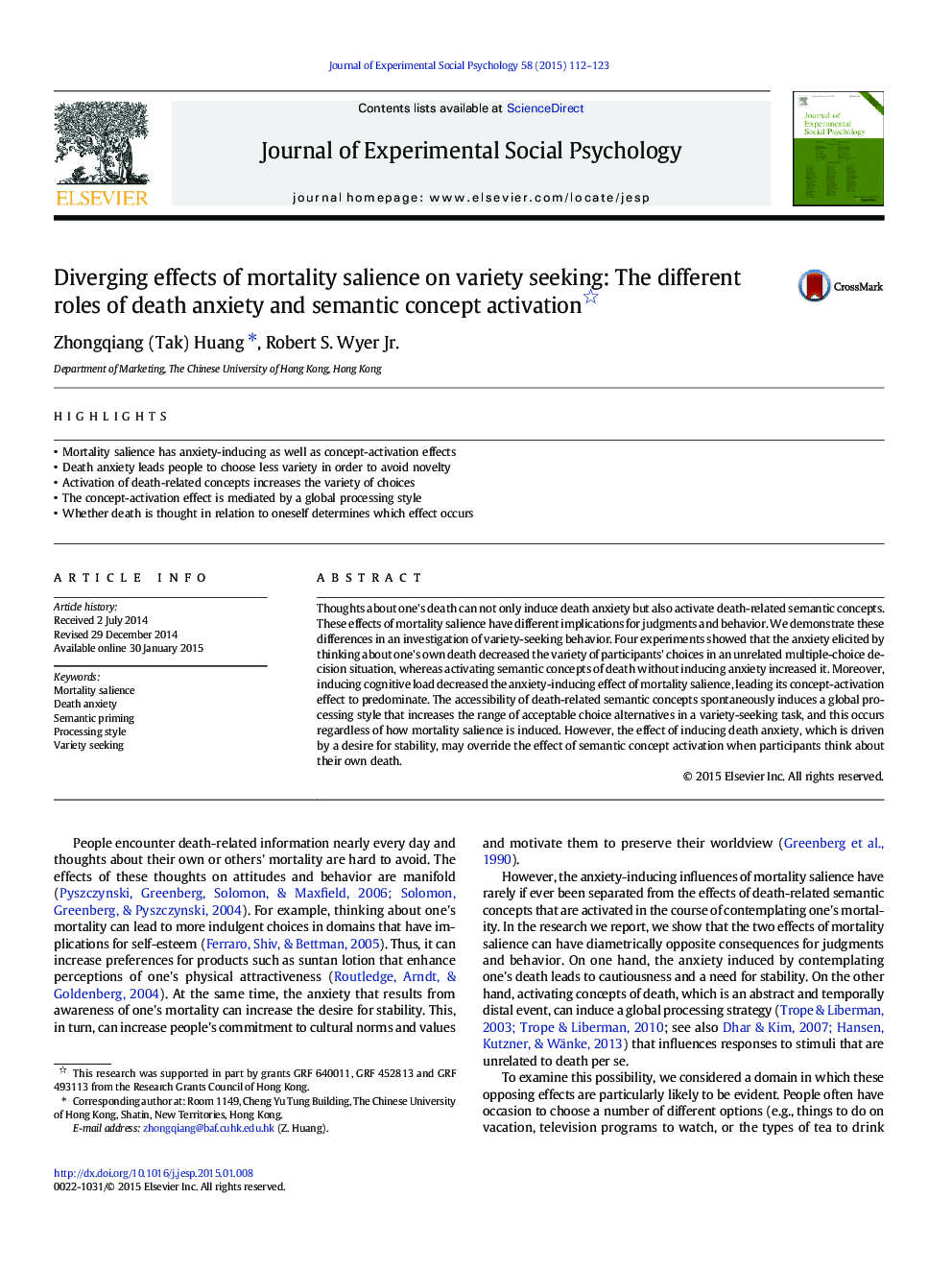| Article ID | Journal | Published Year | Pages | File Type |
|---|---|---|---|---|
| 7324699 | Journal of Experimental Social Psychology | 2015 | 12 Pages |
Abstract
Thoughts about one's death can not only induce death anxiety but also activate death-related semantic concepts. These effects of mortality salience have different implications for judgments and behavior. We demonstrate these differences in an investigation of variety-seeking behavior. Four experiments showed that the anxiety elicited by thinking about one's own death decreased the variety of participants' choices in an unrelated multiple-choice decision situation, whereas activating semantic concepts of death without inducing anxiety increased it. Moreover, inducing cognitive load decreased the anxiety-inducing effect of mortality salience, leading its concept-activation effect to predominate. The accessibility of death-related semantic concepts spontaneously induces a global processing style that increases the range of acceptable choice alternatives in a variety-seeking task, and this occurs regardless of how mortality salience is induced. However, the effect of inducing death anxiety, which is driven by a desire for stability, may override the effect of semantic concept activation when participants think about their own death.
Related Topics
Life Sciences
Neuroscience
Behavioral Neuroscience
Authors
Zhongqiang (Tak) Huang, Robert S. Jr.,
